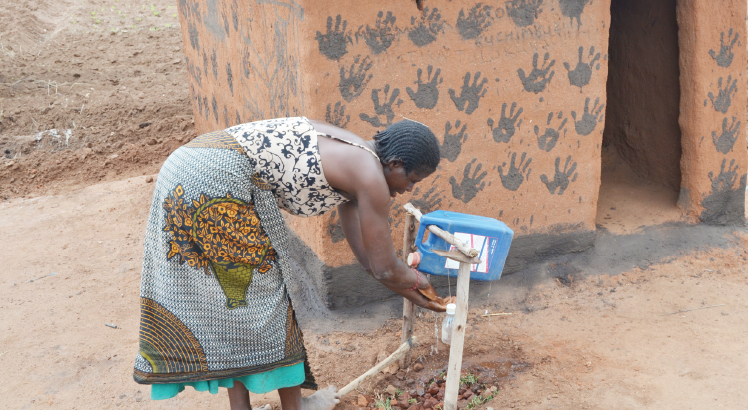Chief rallies call against malnutrition
It is not for nothing that village head Magwira of Thyolo is a happy community leader.
“If you go door to door in my territory, you will not find a home without a latrine,” he says.
The traditional leader enforces community by-laws that prescribe a fine of two chickens for unsanitary households.
“If you find one, I will happily find the owners before ordering them to do the needful because one’s negligence puts everyone at risk of diarrhoea, including cholera,” he explains.
Magwira champions the community march against malnutrition fuelled by monotonous diets as well as gaps in access to safe water, poor sanitation and hygiene.
His home is surrounded by leafy crop fields where he once grew maize only. Now he plants the grain along with beans, orange-fleshed potatoes and pigeon peas. In the backyard is a fenced garden where he gets vegetables when seasonal ones dry in the fields.

There is also a pit where the family dumps waste, a spotless pit latrine with a drop-hole cover and a foot-operated hand-washing facility.
“I lead by example. I want the villagers and passers-by to learn from what I do, not what I say,” he says.
Chickens freely roam the homestead in the shades of mango trees.
Some of the birds belong to a women’s care group that promotes nutrition, sanitation and hygiene together with the community leader.
The care group was formed in 2016 when Afikepo, a nutrition project financed by the European Union through United Nations Children’s Fund (Unicef) and its sister, Food and Agriculture Organisation (FAO), arrived in the tea-growing district.
“At the start of the project, I summoned all the parents and we resolved to work together to end malnutrition. I have taken the lead to turn the dream into reality,” Magwira narrates.
The 350 households in the village now own latrines and grow different crops so that everyone, especially children aged below five, gets diversified diets with six groups.
“The chief tells us that food is not only nsima and nsima is not the only food our bodies need. For instance, we can eat futali [some boiled potatoes seasoned with groundnut flour] with meat and vegetables and go to sleep without complaining that we went to bed hungry,” says Elizabeth Masitala, chairperson of Chang’ombe care group.
It comprises 13 nutrition promoters. Each of them shares nutrition tips with 10 households that play home to children below five, expectant women and breastfeeding mothers.
Elizabeth, a 21-year-old mother of one, salutes Magwira for encouraging parents to give children six food groups to prevent stunting.
The sign of severe malnutrition affects nearly one in every three children nationwide, according to the 2015 Malawi Demographic and Health Survey.
“When the nutrition promoters detect a child stunting, they talk with the parent and explain the importance of nutritious meals containing six food groups. We even give them eggs from the communal chicken because stunting is unacceptable in our village,” Elizabeth says.
The lead mothers go door-to-door identifying children under five, pregnant women and breastfeeding mothers to teach them the importance of eating six food groups and how they can prepare diversified diets using locally available foods.”
The collective efforts help children stay healthy, grow well and evade learning problems, mothers say.
Health surveillance assistant Madalitso Mikowa monitors the nutrition of 33 children in the rural setting.
He said: “Malnutrition has become rare at Magwira because the chief and his community easily accept new ways of doing things. This is why children are no longer malnourished or haunted by diseases that prey on dwindling immunity.
“At the start of the project six years ago, there were about seven to 10 stunted children in the area, but we rarely encounter a case of severe malnutrition since Afikepo has empowered the community with food how to prepare diversified diets and the importance of sanitation and hygiene.”
The care group meets once a month for masanje, the cooking demonstrations where they teach one another how to prepare meals containing bites from every food group.
“Malnutrition is disappearing and children are benefitting as women apply lessons from the cooking demonstration,” says Mikowa.
The cooking sessions are also credited with fast-tracking the rehabilitation of children with moderate malnutrition before complications strike.
“Their nutrition improves within two weeks, meaning there is no need to pay extra costs for transport and hospital stay at Malamulo Hospital,” states the health worker.
And Magwira urges all community leaders to jump to the frontline in the fight against hunger and malnutrition. He believes the global goal is achievable if Malawians unite to make it happen.
“Leaders should walk their talk because what they do is what people follow,” he states.





